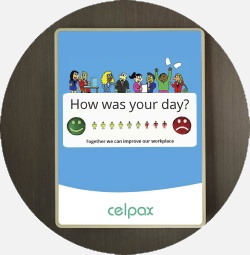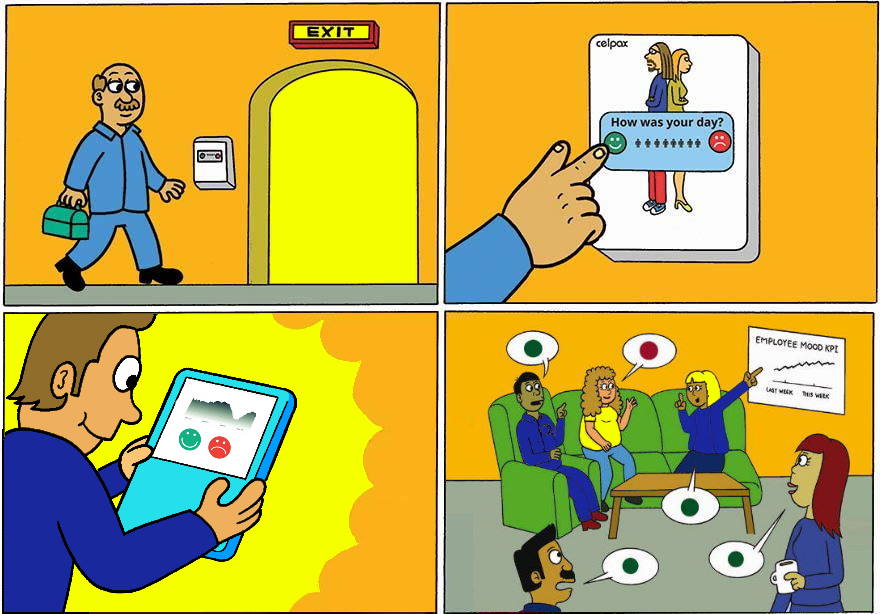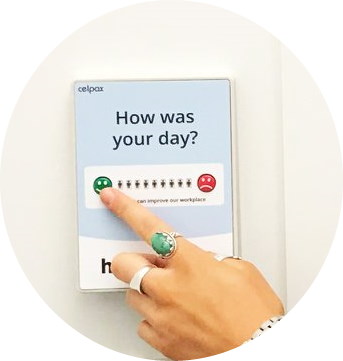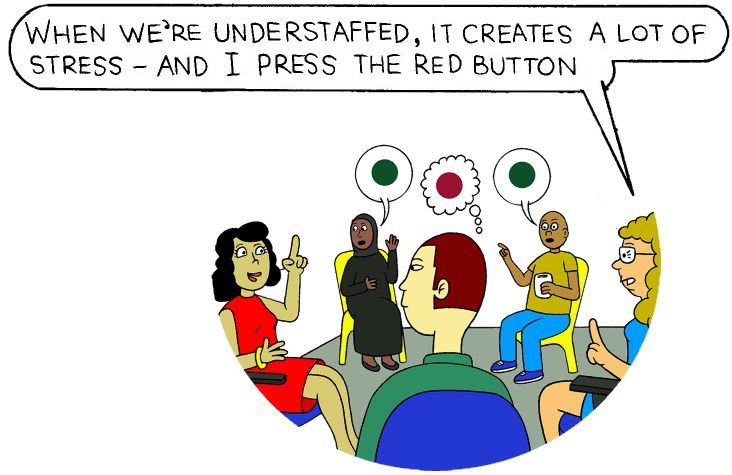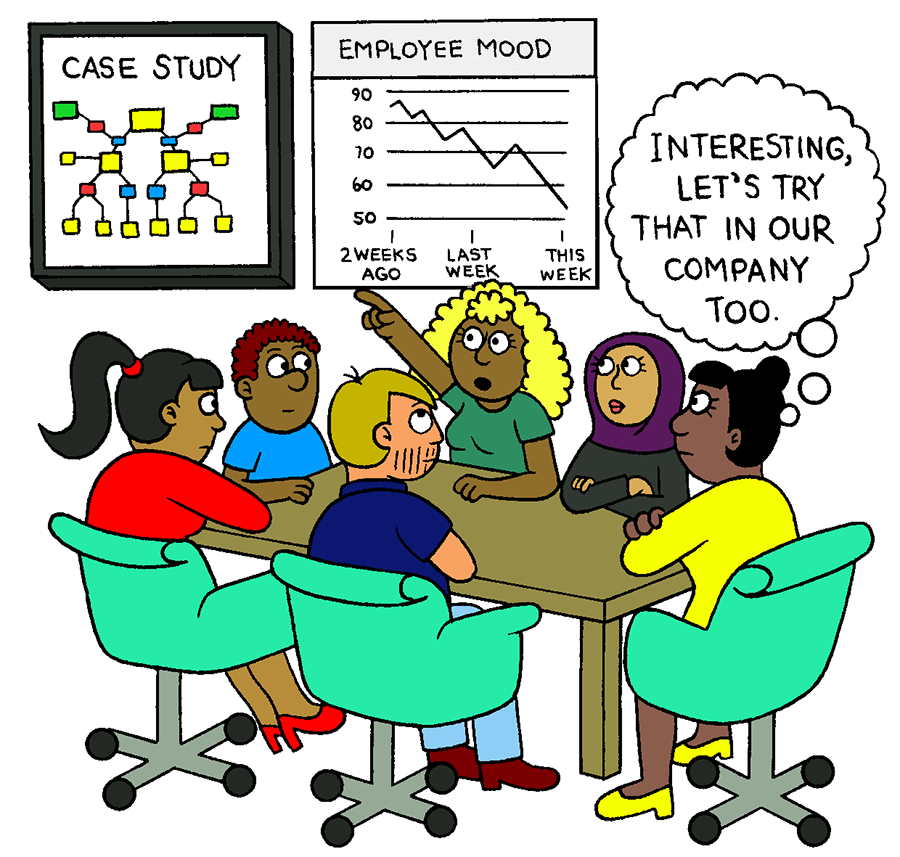Our methodology: Baseline Measurement
The perhaps hardest thing about leadership is to be sure you’re doing the right thing.
When trying to fix problems, how do you know that the changes you make are effective?
Unless you know how big the problem was before it started, it’s tricky, right?
What are you going to compare with?
With Baseline Measurement, you establish a starting point.
In this case:
How was your day?
How can you measure employee morale in an easy and fun way?
The Celpax device always measures the same variable: How Was Your Day?
As a result, you get a baseline of how your employees feel at work.
I.e 75% press green on average.
That is your Mood KPI.
After that, you can check how effective an improvement or a change initiative is.
And see how employees react:
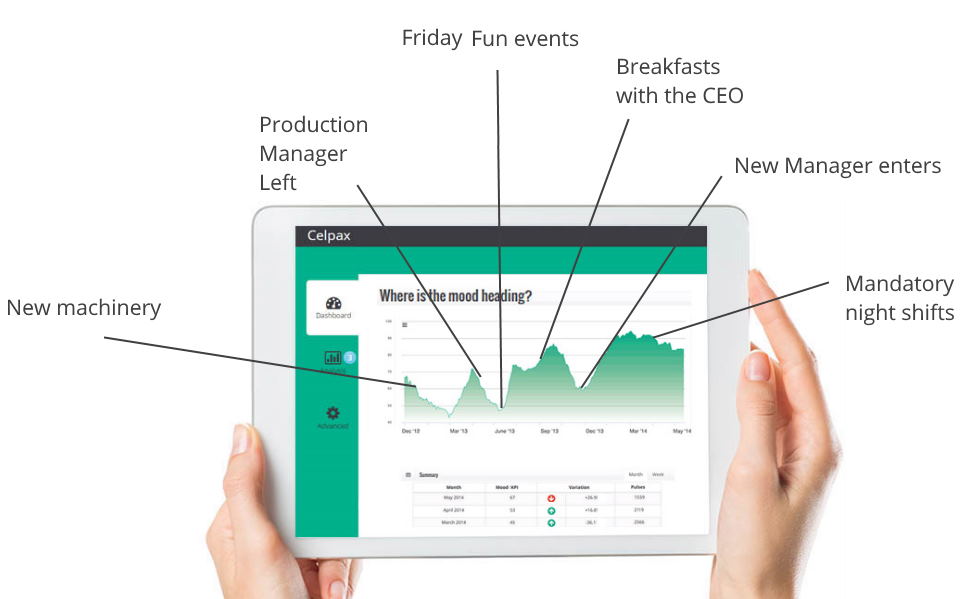
Track your improvement journey
Above to the left, you see the negative impact of the new machinery.
To the right, the positive effect as a new manager joined.
Check the impact of important communications, staff rotation, organizational change…
“If a pulse survey is sent every Friday we’ll never know how our Mondays are.
Your last day might have been bad. But maybe not your whole week”

Scott Oremland, Zerorez Minnesota
A tool for managers that are DOERS 
Some managers keep asking for more reports. More details.
Hey, how was the mood at 2 pm? At 3.30? At 4.15?
They don’t get the concept, they just want reports.
And then they fail to take action.
One organization hired a consultancy firm to do a big leadership training. That’s great!
Meanwhile, their employees kept pressing red because “there’s never any freaking toilet paper”.
See the gap?
Start a culture of conversation
Another manager took over a factory in receivership. Soon, their employee morale data climbed.
Fast!
So what did he change in the organization?
One day a worker gave him some spontaneous feedback:
What was the new manager doing?
To sum up: walking around and talking with employees on the shop floor.
He opened up conversations about what worked (green smiley button!) in their day to day.
And also, what they could improve (red button) in their organization.
That is to say, small things make a big difference over time.
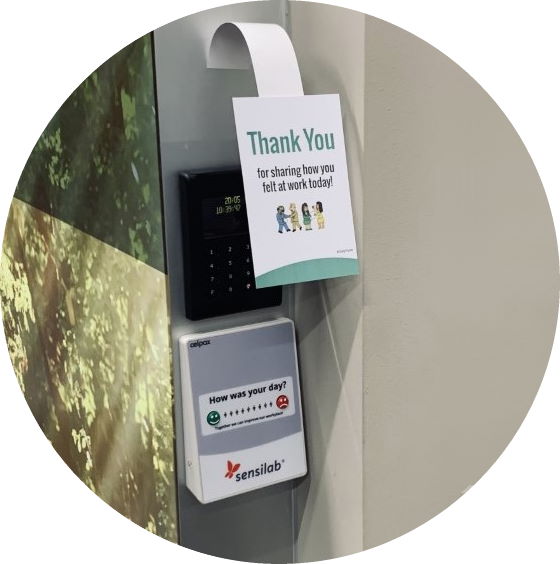
The Celpax is all about small, incremental changes, week on week that add up to big improvements.
Many years ago we sat down to analyze those who measure employee morale with our Celpax. The data sent a clear message:
Which companies get the best scores?
Those who frequently talk with their employees about how they feel at work.
At all levels!
So not just the team managers.
Consequently, our users say that the Celpax sparks conversations.
It’s a neutral number that you can discuss, to improve internal communications.
When there’s a lot of red, leaders ask what causes it. And take action to boost morale at work.
See immediately if your improvements work
As a manager, there are a thousand things you can do to help employees feel more engaged.
With a baseline, you will immediately see if it works when you introduce a change.
Are you getting more green over time?
Or more red?
Here’s our recipe to boost employee morale, in a simple way:
MEASURE.
TALK.
IMPROVE.
Repeat.

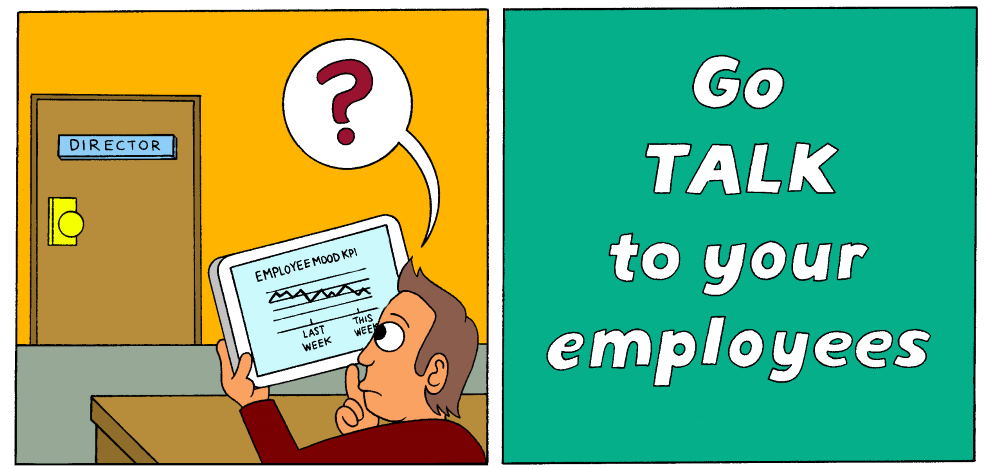
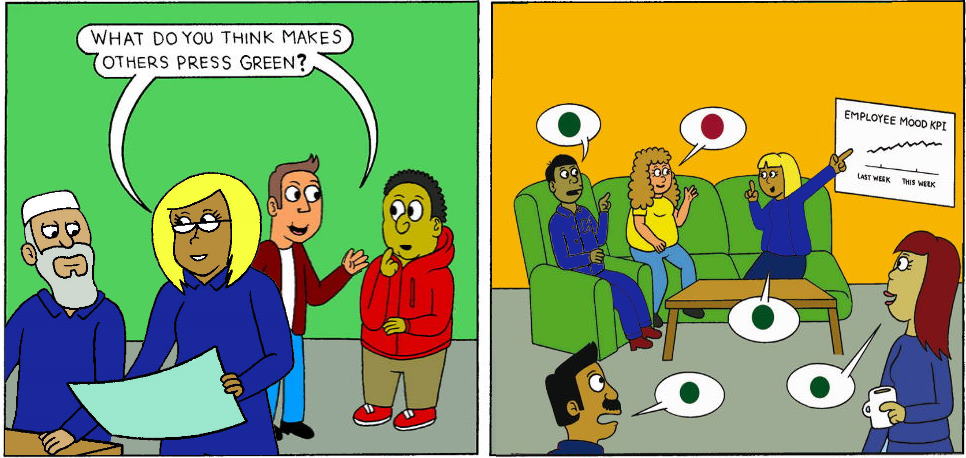
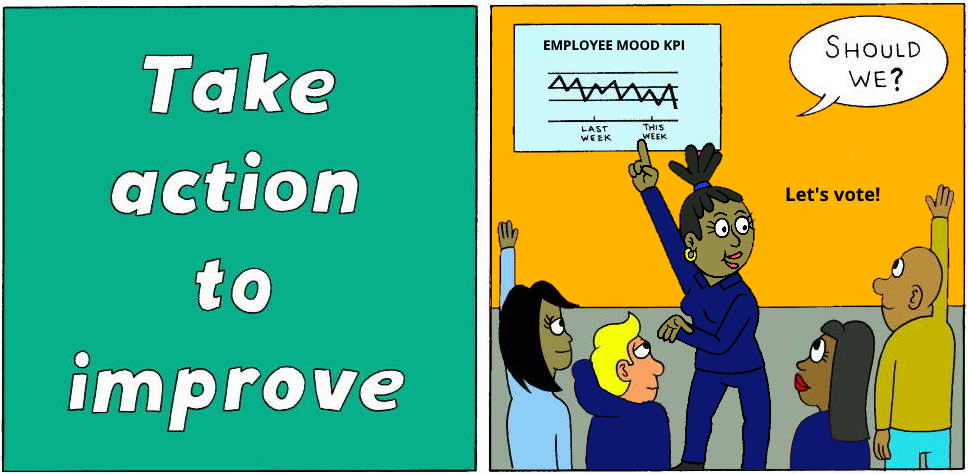
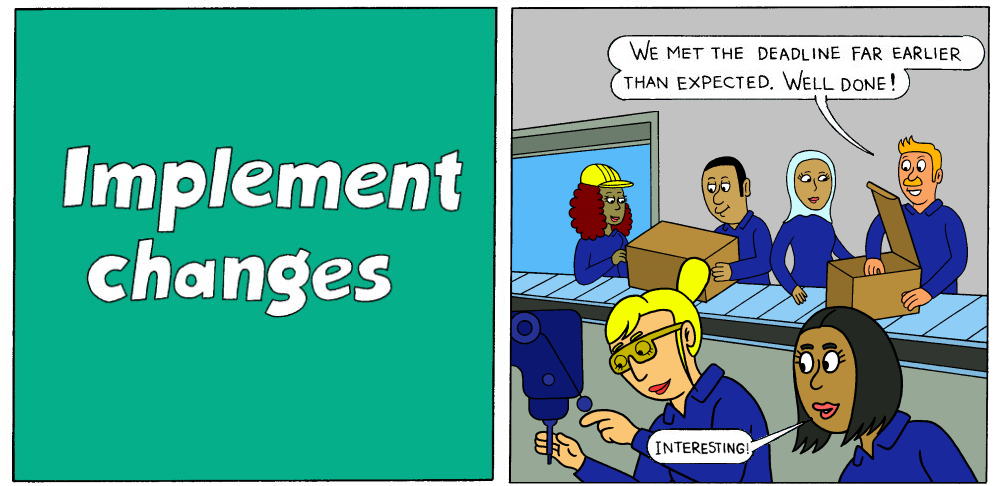
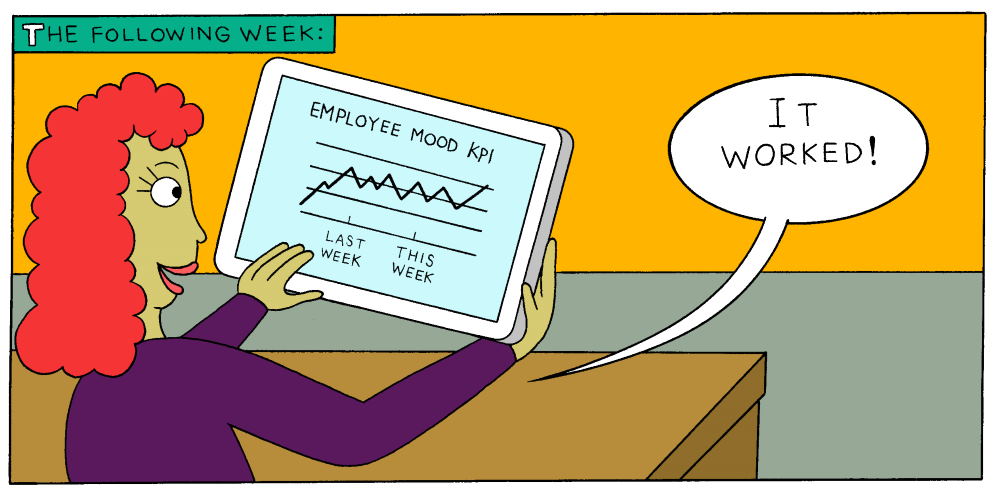

Daily, Weekly, Monthly Data
When you measure employee morale with a Celpax, your analytics are available 24/7.
All online.
You can compare the Mood KPI between all your devices at different departments, teams, shifts, factories, etc.
Check all the survey results and data on the dashboard sections.
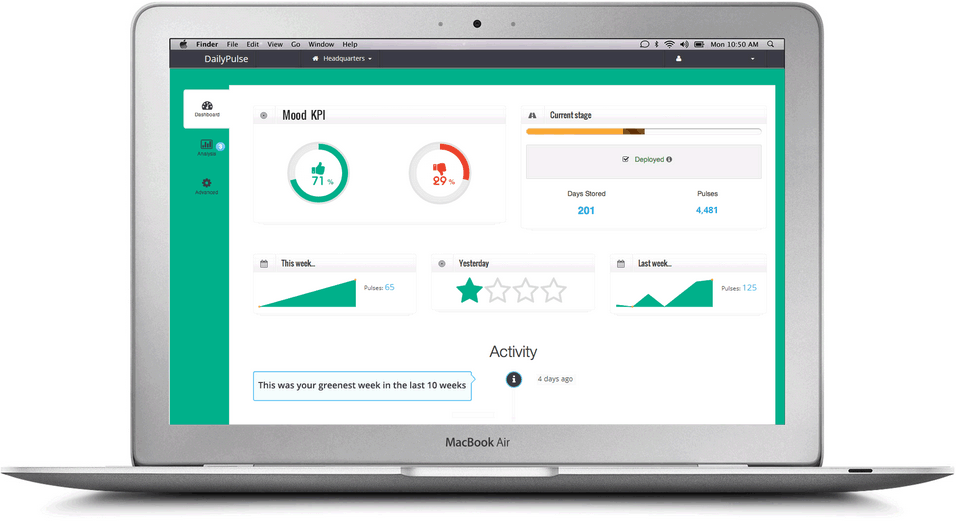
Compare locations
Most companies detect that employees feel different, depending on where they work.
Besides, the employee experience varies depending on if it’s a blue-collar position or office-based.
The impact of the site location and manager is also big when it comes to overall engagement and employee turnover.
And retention!
What’s the upside if you compare the data and the overall engagement strategy between locations? You can learn and improve employee morale, faster.
Compare day and night shifts
Most companies have differences between their shifts.
Sometimes it’s related to the time when people work (“the graveyard shift”).
Sometimes employees feel more engaged because of the shift manager.
Or a shift was really green because there was no manager around in the first place 
To measure is to know.
What can your shift managers learn from each other?
And finally, what action can leaders take to get higher success with their team?
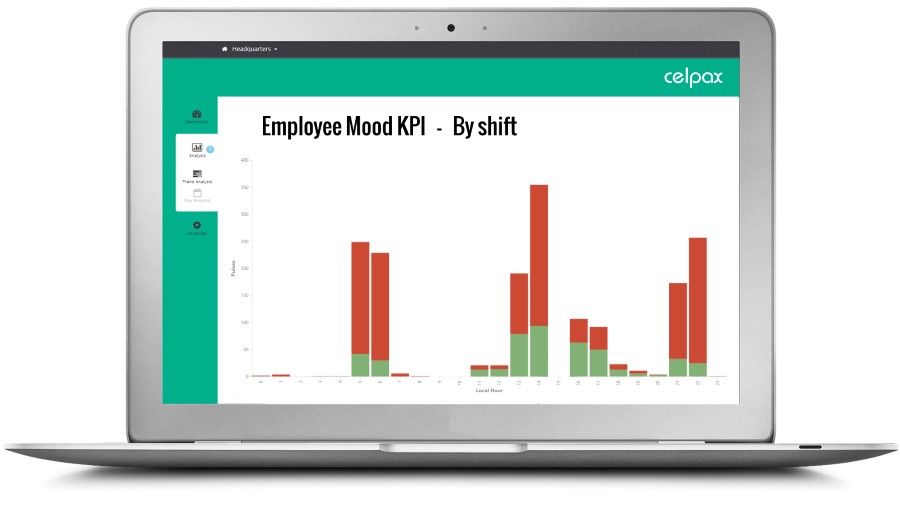
Why is the Celpax device different?
What separates us from other pulse surveys?
Firstly, the simplicity. Secondly, the aim is to transform and change behaviors.
Further, the frequency.
Let’s say you launch your weekly survey the same week you pay yearly bonuses. The outcome is that your questions will show a more positive result.
And what if your pulse survey asks employees to “Rate their manager” the same week they are given new, uncomfortable, protective gear? Well, you’ll get a more negative result.
Hence, are your people rating the manager? Or rather rating the blo*dy protective shoes they have to wear?
You need a solid baseline to compare to.
Want to show the Celpax to your people?
Here’s a presentation



‘We compare our Mood KPI to productivity’
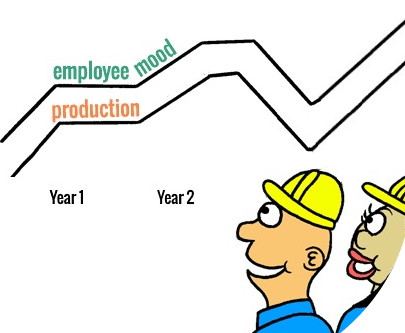
‘It’s amazing how our efficiency index correlates with our Employee Morale KPI”
A manufacturer’s story
Continuous Improvement at Metzo

“People need to be encouraged to speak out. Even if what they say is not positive”
Leadership skills examples
“Once SAP went live everyone was unhappy.
We realized we had to do refresher trainings.
Our Mood KPI went up again!”

Philip Shum
Director, Change Management

Track morale as you implement and manage change

Pulse survey results
What companies measure employee morale with a Celpax?
All sorts of organizations!
- From 10 employees to Fortune 500’s
- All sectors: Factories, Offices, Private, Public, Startups
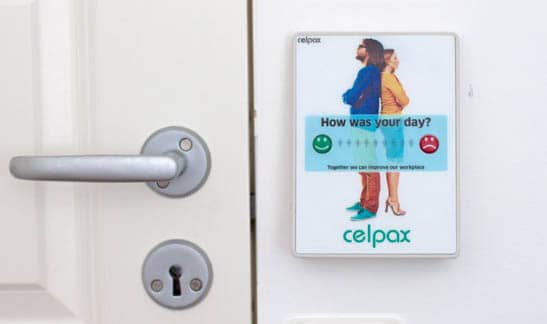
“Instead of a yearly survey, we continuously try to steer in the right direction”
Eugène Kusse, Unilever


What is the Celpax device?
The Celpax is a physical device that continuously measures how your people feel at work.
Just press a smiley button!
This is about small, incremental changes, week on week that add up to big improvements.
Leaders in 60 countries verify the impact of their leadership actions, day after day.
Sharing is caring!







